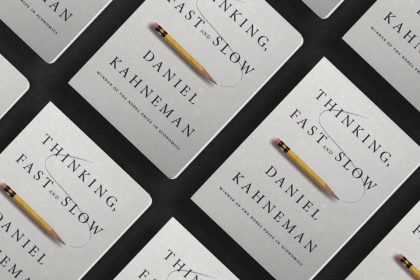Nexus: A brief history of information networks from the Stone Age to AI, is the most recent book written by best-selling medieval historian Yuval Noah Harari. This nonfiction book explores the creation and destruction of our world through the lens of human history. The greatest information revolution in human history is what we are currently experiencing.
We must comprehend what came before to understand it. Since Homo Sapiens, which means wise human, is the term given to our species, why do we act in such a self-destructive manner? Specifically, what is the reason behind our impending ecological and technological catastrophe? The propagation of mass delusions, fiction, and fantasies is the simplest way for humanity to create and sustain the vast networks of cooperation that give it power.
The artificial intelligence (AI) might serve as the hub of a new network of misconceptions in the twenty-first century, one that would make it impossible for succeeding generations to even try to reveal its fabrications and lies. Nevertheless, neither history nor technology is deterministic; we can still avert the worst-case scenarios by making wise decisions. All the debate in the book goes around information that is given to you and that information can create benefits and hurdles for you.
In a democracy, information flows from all kinds, and there is no central system to control it
There is an emphasis on how information flourishes in democracy, and on the other end, authoritarian regimes are getting benefits from that information. Then Yuval Harari introduces the term ‘Silicon Curtain’, saying that all coming wars will not happen between democracies and authoritarianism, but there will be a ‘silicon curtain’ between technologically-advanced and less advanced countries. Why is information so important in this age?
The author says let’s define information first. He says that it is impossible to define information because everyone sees it according to his perception, and it is undefinable. In the next chapter, he talks about the evolution of information. In ancient times, people did not know the language, but with the help of sign language, they could communicate with each other, after the invention of language, this information passed through with the help of storytelling.
Civilization further grew after the invention of paper, printing press, radio, television, computer, telephone, and android phones, and AI information passed through according to the age of its technology. In the next chapter, the writer connects information with the political system by saying that it is not always true that the given information is always true; it can be false propaganda.
Sometimes political typhoons expose information for their benefit with the help of silicon giants. Some sightings on the importance of information: how is information important in today’s world? In this age of AI books, it says that information is a weapon; it can change the destiny of countries and societies. He quotes the example of Cher-Ami, an American battalion in the time of the World War One, who was struck in the enemy line, and their army considered them the enemy and started bombardment on them.
Today, all kinds of surveillance are performed by robotic AI, and there is no chance of human error or emotional attachment
There was no exchange of information between both the armies, and in the end, a pigeon named Cher-Ami sent a struck army unit to their army, and in this way, their unit was saved. Further, he quotes the example of Nili Spy, a Jewish spy network that was discovered by Turkish intelligence in the World War One and killed. These two examples are prime examples of how information is important for human lives.
Next, he says information is a source of connectivity; it makes connections with the help of stories that everyone on social media is telling his own story. He says humans are connected with two kinds of stories, first the story of religion and the story of nationalism, which both connect them according to their ideologies. Yuval Harari says that it was human desire; he always wants to connect himself with infallible systems and wants errorless information.
In the past, religion was the main source of this errorless system, but nowadays AI has replaced it and made an advanced infallible system. He further says that the information that we are getting from social media platforms may be crafted by a narrow elite, and it has been given to you by a narrow elite according to their taste and interests. For example, according to the book, in authoritarianism, information is highly centralized, and dictators give such a controlled version of information that we consider infallible, but in democracy, information works in different ways.
In a democracy, information flows from all kinds, and there is no central system to control it. In the next chapter, he highlights the examples of the printing press; it was under the control of humans, but now computers are deciding with the help of their algorithms what kind of information a user wants. In previous times, the work was done by humans, like in the Qin dynasty of China, and it was a strict system to survive, and this kind of system was also in Greece.

Today, all kinds of surveillance are performed by robotic AI, and there is no chance of human error or emotional attachment. Further, he says that AI is creating uncertainty in the world, on one side, democracy is flourishing, but on the other side, dictators are using it. In the 2024 US election, no one can guess who was the winner because Donald Trump used AI to propagate the election results. Yuval Harari points to Trump’s usage of AI and social media in the 2016 and 2024 elections as examples of how modern tools can manipulate information flow for political gain.
To sum up, it is impossible to exaggerate the importance of knowledge in modern society. As Yuval Harari emphasizes, political systems, social structures, and international hierarchies are all shaped by it. Information is a basic feature of the modern era, whether it is employed as a tool for control or emancipation, particularly with the development of artificial intelligence. The true difficulty is in how societies control information flow and resolve the moral conundrums brought about by technology’s growing influence in manipulation, surveillance, and decision-making. How we bridge the gap in technology and the moral challenges it poses to both democratic and authoritarian administrations may determine course of the future.
















